The Searching Wind
Brief Synopsis
Cast & Crew
William Dieterle
Robert Young
Sylvia Sidney
Ann Richards
Dudley Digges
Albert Basserman
Film Details
Technical Specs

Synopsis
In 1945, in Washington, D.C., United States Ambassador Alex Hazen retires after a career fraught with mistakes. Alex and his wife Emily, whose daughter Sarah is away at school, also have a son named Sam, who suffered a leg wound in the war and has come home disillusioned. The Hazens live with Emily's father Moses, who used to be an idealistic newspaperman, but sold his newspaper out of disgust at the rise of dictatorships in Europe. One night in April, Alex confesses to Emily that he is leaving her for their mutual childhood friend, Cassie Bowman, a journalist, who recently returned to Washington. Emily agrees to a divorce, but invites Cassie to dinner, ostensibly to clear up past misunderstandings. During dinner, they hear a radio news flash announcing Benito Mussolini's death by Italian patriots in Milan. When Alex celebrates the news, Cassie reminds him that twenty-three years earlier, as a diplomat in Rome, he did not view Mussolini as an enemy to Democracy. All but Sam then remember being in Rome on October 27, 1922, when Mussolini and his black-shirted "Fascisti" marched on the capital: Cassie and Moses adamantly oppose the Fascist dictatorship. Alex, a young diplomat, believes Italy is merely engaged in a civil war, while Emily is interested only in maintaining diplomatic decorum with those who have risen to power. Alex, who is in love with Cassie, begs her to stay in Rome and marry him, but she refuses because of their political differences. Moses, disillusioned by the state of world affairs, sells his newspaper after giving Cassie a post in Paris. A year later, Alex is reassigned to Berlin, and he and Emily marry, although they both admit they are not passionately in love. In 1928, Cassie is sent to Berlin to research the National Socialist party, which is gaining power, and reports on the inhumane treatment of Jews there. After her visa is mysteriously canceled, she visits Alex at the embassy, and he naïvely insists that the Nazis will never amass any real power. In Berlin, Emily and Alex, who have since had Sam, hope to be reunited with Cassie, but she tells Emily that she does not that believe Emily and Alex were ever really in love, and asks not to see them again until they can speak honestly about the past. In the following years, Hitler gains power, and on 30 January 1933, he is made chancellor of Germany. Cassie and Alex do not see each other again until 1936, when on 12 November, during the Spanish Civil War, they have a chance meeting in a Madrid café as it is being bombed. Although Alex is still married to Emily, who has since had a daughter, he swears his love to Cassie, and they kiss. Before they part, Cassie again makes an unsuccessful attempt to convince Alex that America's policy of nonintervention is aiding the ruin of Europe. Then, in March 1938, Germany annexes Austria in the Anschluss . Only after Hitler orders the German occupation of the Sudetenland, in southern Czechoslovakia, is Alex, now stationed in Paris, finally forced to take a stand on appeasement. As he prepares a report for the State Department, Emily pleads with Alex to avoid war for the sake of Sam. Alex recommends appeasement, and on 29 September 1938, the Munich Agreement is signed. Back in the present, Cassie tells Alex that they will never marry because his personality is more suited to Emily's. Later Sam accuses his father of appeasement in both his personal and professional lives, and blames Moses, his parents and their generation for sending innocent millions to war. Finally, Sam offers his leg, which is to be amputated, to the cause of democracy.

Director
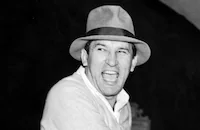
William Dieterle
Cast

Robert Young

Sylvia Sidney

Ann Richards
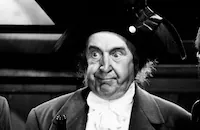
Dudley Digges

Albert Basserman
Dan Seymour

Ian Wolfe
Marietta Canty
Norma Varden
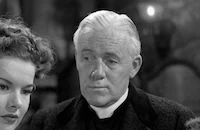
Charles D. Brown
Don Castle
William Trenk
Mickey Kuhn

Ann Carter
Dave Willock

Douglas Dick
Fred Gierman
Henry Rowland
Arthur Loft
Pietro Sosso
Armand Cortes
Neyle Morrow
Albert Pollet
Fred Nurney
Hans Von Morhart
Arno Frey
Joe Whitehead
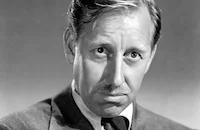
Frank Ferguson
John Mylong
Eva Heyde
Jon Gilbreath
Otto Reichow
William Yetter Jr.
Daniel De Jonghe
Adolph Freeman
Bert Moorhouse
Albert Ferris
Robert Strong
Al Winters
Hans Moebus
Hilda Tanzler
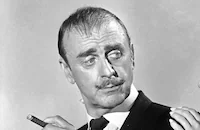
John Dehner
Eugene Borden
Maurice Marsac
Reginald Sheffield
Mary K. Wells

James Millican
Kenneth Patterson
Harry Semels
Tony Paton
Julio Bonini
Elmer Serrano
Georges Renevant
Leo Mostovoy
Marie Surdez
Marcel De La Brosse
Jack Mulhall
Frank Arnold
Will Thunis
Louis Ludwig Lowy
Tom Chatterton
James Carlisle
Wedgewood Nowell
Alex Novinsky
Stella Le Saint
Albin Robeling
Crew
Franz Bachelin
Richard Blaydon
Sam Comer
Hans Dreier
Farciot Edouart
Lee Garmes
Hugo Grenzbach
Loyal Griggs
Lillian Hellman
Devereux Jennings
Gordon Jennings
Gordon Jennings
Paul Lerpae
Warren Low
John Macneil
Richard Mcwhorter
Dorothy O'hara
Walter Oberst
Helen Gladys Percey
Dorothy Robinson
Harry Webb
Wally Westmore
Philip G. Wisdom
Michael Woulfe
Victor Young

Film Details
Technical Specs

Quotes
Trivia
Notes
In a written foreword, the film quotes the speech made by President Franklin Delano Roosevelt's at the Yalta Conference on 1 March, 1945: "Twenty-five years ago, American fighting men looked to the statesmen of the world to finish the work of peace for which they fought and suffered. We failed them then. We cannot fail them again, and expect the world again to survive." Dates of historical events were not mentioned in the film, although, as reported in Paramount News, an exact timetable of the events leading up to World War II was used on the set to enhance the "time consciousness" of the actors. Specific historical dates were added to clarify the above plot summary.
One day before production began, Hollywood Reporter listed screenwriter Peter Berneis as a dialogue contributor for the film; however, his contribution to the final film has not been confirmed by any other source. According to Hollywood Reporter news items, Joan Crawford was considered for a starring role in the picture, and Leslie Venable, Mae Busch and Michael Strong were tested for roles, but did not appear in the final film. Paramount News lists Bill Meader in the cast as a reporter, but his participation in the released film has not been confirmed. Dudley Digges, who portrays "Moses" in the film, first played the part on Broadway. The film marked the screen debut of Douglas Dirk, and Robert Young's seventy-fifth feature. Director William Dieterle was borrowed from David O. Selznick's company, and actress Sylvia Sidney was borrowed from Cagney Productions. As reported in Paramount News, Viennese actor William Trenk, who plays "Ponette" in the film, was a popular comedian of the European stage, screen and radio before the war, and became a propagandist for the Austrian underground resistance movement. Before coming to the U.S., Trenk was imprisoned four times for lampooning Adolf Hitler. While in the United States, Trenk reportedly continued to send anti-Nazi broadcasts via short-wave radio to Germany and occupied Europe.
Several reviews note that film changed the occupation of the stage character "Cassie" from a schoolteacher to a journalist. According to memos in the MPAA/PCA Collection at the AMPAS Library, early versions of the script included a consummated love affair between "Alex" and "Cassie" before his marriage to "Emily," as well as an adulterous affair later. Due to pressure from the PCA, no indication of a sexual relationship between Alex and Cassie was in the released film, although they are shown trying to come up with a plausible alibi for arriving late to concert in Rome after going for a drive alone. As reported in Paramount News, background shots in the film were selected from the film records of historic events that preceded World War II, including footage from captured Italian and German newsreels. Paramount News also commented on the use of cork, which had been scarce during the war, to act as noiseless gravel on the driveway set. The Variety review of the film states: "The spirit of appeasement, of laissez faire, is strong in the U.S. again. The lessons of the first and second World Wars are apparently forgotten. By recalling the mistakes agreed on, by calling attention...to President Roosevelt's words...[the] film May wake the U.S. up through it's message." The New York Times review stated, however, that "no pompous and short-visioned statesmen are likely to be blown over by [the film's] gentle blast." In an article in the Saturday Evening Post entitled "The Role I Liked Best...," Sylvia Sidney states that her character, "Cassie," "in an intensified way, mirrored [her] own feelings about Europe's prewar problems." Sidney's participation in the film made her feel that she was "doing something to bolster the general argument against appeasement."












